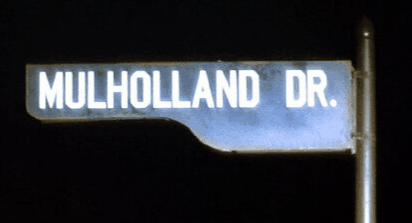LGP Art Theory Course (1968-72) Symposium – 18th November 2010
LGP are organising a symposium of leading academics, artists, curators and writers to analyse the echoes of events at CSAD 1968 – 72 and look at current art educational practice and the perceived systematised failures and/or successes. It will examine the role that the regional art education institution played in the art education narrative and its significance to the wider counter culture of the 70s. In the late sixties and early seventies, CSAD held a vital subset of staff and students who together were responsible for formidable critical opposition to the art education model’s perceived compliance with the market definition of the art object and its reliance on the centrality of the author.
The Art and Language collective’s critical agenda was to shift focus beyond the material paradigm and to construct an education capable of reflecting and promoting conceptual practice. The 70s administration of CSAD repelled this self conscious overturn of the traditional material/author-centric regime. This unyielding stand, common through regional art schools at that time, created a network of opposing force which became part of the wider counter culture of the decade.
The symposium will look at the significant role that regional art schools played in the art education narrative and examine how, if at all, the art education institution can function as a site of self-organisation, agitation and change. It will be held at the Herbert and free to attend.
Speakers:
Terry Atkinson, Artist and Founder of Art and Language.
Neil Mulholland, Associate Head, School of Art, Edinburgh College of Art.
Simon Bell, Senior Lecturer Design and Visual Arts, CSAD.
Neil Cummings, Professor of the Theory and Practice of Art, University of the Arts London.
Francis McKee, Curator, Writer and Director of Centre of Contemporary Art, Glasgow
Lisa Tickner, Professor, Courtauld Institute of Art, London.
John Reardon, Founder of Artschool UK and Lecturer in Politics, Goldsmiths
Annie Fletcher, Independent Art Critic and Curator.
The proceedings and papers from the symposium, along with a reflective article by the chair Professor Steve Dutton, will be published in January 2011 and be distributed world-wide to major and marginal educational establishments, art galleries, museums and public libraries. It will take the format of a free newspaper.
LGP, in collaboration with the Herbert Art Gallery and Museum, is presenting a solo exhibition of David Rushton’s eclectic body of work. Rushton was solidly involved in the conceptual Art and Language movement both as a student at Coventry School of Art in the early seventies and beyond. His art practice is infused with the radical politics of that time and this root focus has been transmitted through various politically committed disciplines; local television, trade unionism, social activism and education.
The exhibition is purposefully divided between both sites. LGP’s curatorial focus is art and education. Rushton has been working with CSAD students to restage a work he did as a student at CSAD in 1970. The work is a replica of a Robert Morris soft-form felt cutting piece that he produced as an alternative to writing an artist biography for an art history assessment. It was a statement about authorship and the dematerialisation of the art object, as well as a pointed comment towards the institution’s staid imposition of the separation between art theory and the art object. The Morris project is one example, of many, of an internal intervention Rushton and his peers undertook to address the educational objectives of the art school. The sense of agency or agitation didn’t transfer to the contemporary students and we thought this was symptomatic of the wider crisis in art education.
Alongside the historical interventions and contemporary re-appropriations, LGP will display select titles from Rushton’s collection of UK art student magazines, critique and journals from 1969 – 79. These publications reflect a period of significant administrative change to the management structure of UK art schools and the insurgent artist-collective and self-organisation initiatives that this triggered in defence. By distributing it through other regional art schools where similar struggles for a theoretical practice were taking place, they created a dynamic and robust network of students, resistant to the traditional modes of teaching and keen to share their collective intellectual enquiry. The content in this material was of significant conceptual consequence and became an integral part of the wider counter culture of the 70’s. As well as having intense localised influence, the distributing network they established meant that the content was a great force of agitation, and eventually of consequence, to the prevailing system.
Coventry and other marginal non-metropolitan places that contributed to these publications played a major role in the development of the art education narrative and harnessed a student-led coalition which linked localised but shared ideals to create a significant movement across the UK.


